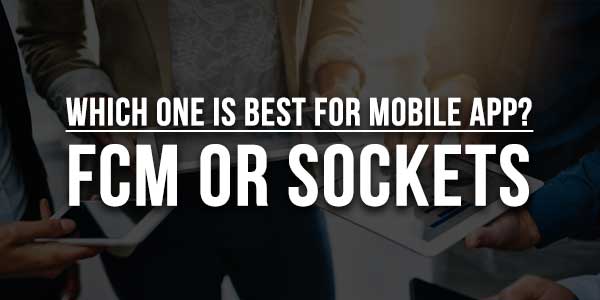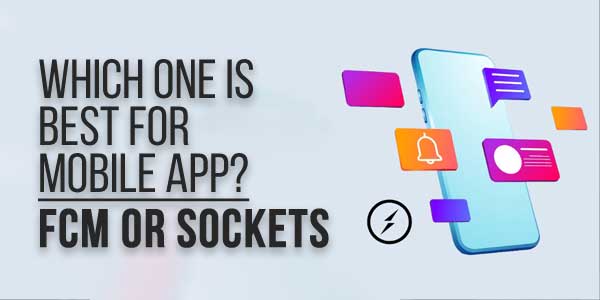
When it comes to deciding between Firebase Cloud Messaging (FCM) and sockets for your mobile app’s communication method, developers often find themselves at a crossroads. Each option has its strengths and weaknesses, catering to different app requirements. In this blog post, we will delve into the features of FCM and sockets to help you make an informed decision on the best communication method for your mobile app.
Table of Contents
Introduction to FCM and Sockets:
FCM (Firebase Cloud Messaging):
FCM is a versatile messaging solution that enables developers to send messages and notifications across platforms without any cost. It boasts easy implementation and advanced features like user segmentation, analytics, and message scheduling. Developers working on hybrid apps find FCM particularly appealing due to its seamless integration with Firebase services.
Sockets:
Contrastingly, sockets offer real-time, bi-directional communication between servers and clients, commonly used in native mobile apps for functionalities such as live updates, chat features, and multiplayer gaming. Sockets provide low-latency communication and high scalability, making them ideal for apps requiring instant data transfer.
Considerations for Hybrid Apps:
Hybrid Apps:
When developing hybrid apps using frameworks like Flutter, the choice between FCM and sockets can significantly impact app performance and user experience. Consider the following factors:
- Real-Time Updates: Sockets excel in providing instant data transfer, making them ideal for apps with real-time update requirements.
- Offline Support: FCM’s ability to deliver messages even when the device is offline makes it a reliable choice for apps that require push notifications.

Native App Development and Sockets:
Native App Development:
For developers working on native apps, sockets are often favoured for their low latency and bi-directional communication capabilities. Some key advantages of using sockets in native app development include:
- Custom Protocols: Sockets allow for the creation of custom protocols for data transfer, giving developers more control over information exchange.
- Scalability: Sockets can handle a large number of simultaneous connections, making them suitable for high-traffic apps.
Conclusion:
The decision between FCM and sockets for your mobile app ultimately hinges on your app’s specific requirements and functionalities. If real-time updates and instant communication are crucial, sockets may be the superior choice. Conversely, if reliability and offline support are paramount, FCM could be the better option. It is essential to carefully assess your app’s needs and select the communication method that best aligns with your goals for the app. Always prioritize performance, user experience, and scalability to ensure the success of your mobile app.














Be the first to write a comment.